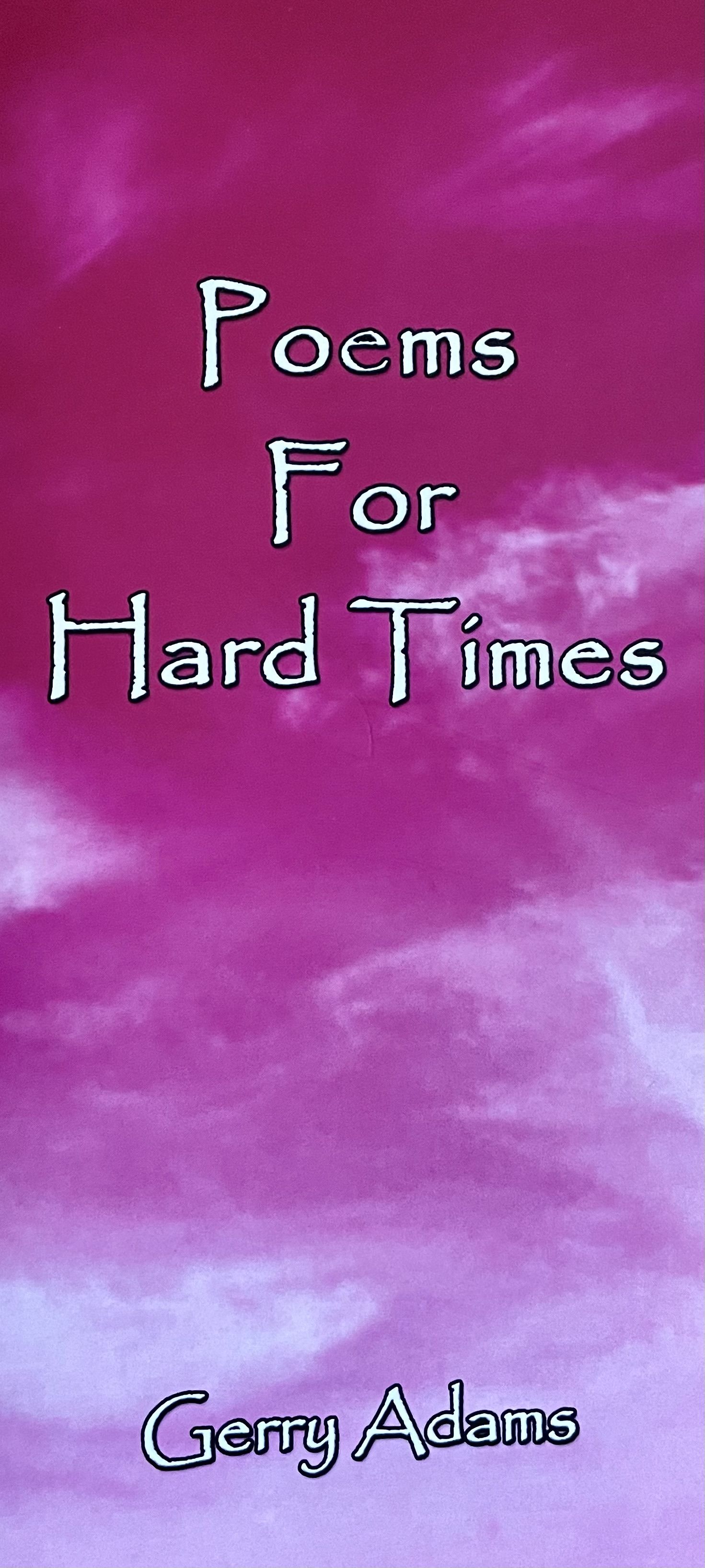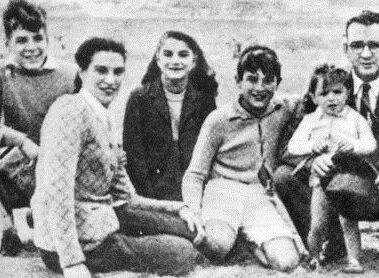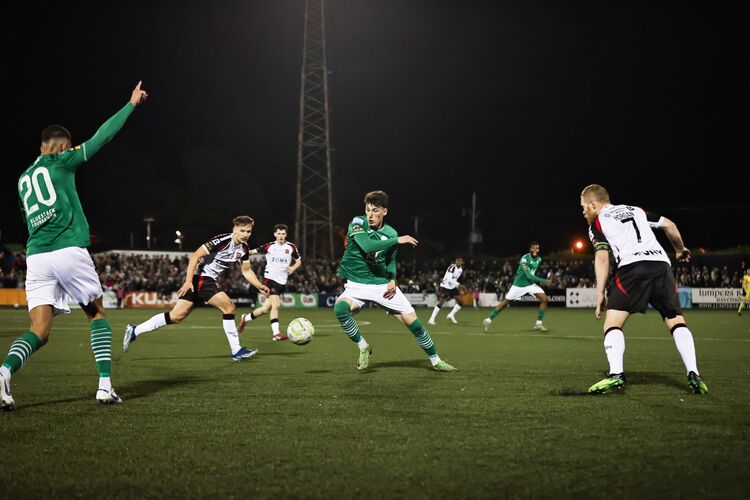I first published this article in 2007 and then, slightly amended, in 2016. And again last year.
We are only a wee while away from the local government elections in the North. Sinn Féin is standing its largest number of candidates ever in this contest including the most first candidates. So I thought this would be a good time to republish it again, slightly amended, once more.
It is my tribute to the majority of candidates who won’t get elected. Think of them as you digest all the outcomes. Good luck to them all. Good luck especially to Sinn Féin’s candidates. I hope we have a great result.
That’s all in the gift of the electorate. So I thank all the voters as well as all the candidates.
Opinion polls have become an integral part of every election campaign. Every newspaper and every broadcast outlet tries to second guess the electorate by commissioning polls. And then columnists or pundits spend a huge amount of time analyzing the poll they just commissioned.
So do many candidates. And their supporters. This can lead to mood changes and other character changing tendencies. This can be very stressful. So every candidate and everyone else should be mindful of the particular and peculiar stresses and strains that come with being a candidate. It’s a form of ailment called Candidatitis. It begins with the candidate coming to believe – with a certainty known only to the prophets of old – that they are going to win.
This syndrome is capable of moving even the most rational aspirant or shy wallflower into a state of extreme self belief. It strikes without warning, is no respecter of gender, and can infect the lowly municipal hopeful, the aspiring Parliamentarian, as well as the lofty presidential wannabe.
I believe this is due to two factors. First of all most people standing for election see little point in telling the voters that they are not going to win. That just wouldn’t make sense. Of course not. So they say they are going to win.
That's when Candidatitis starts. As the "we are going to win" is repeated time and time again it starts to have a hypnotic effect on the person intoning the mantra. By this time it’s too late.
Which brings me to the second factor. Most people encourage Candidatitis. Unintentionally. Not even the candidate’s best friend will say hold on, you haven't a chance. Except for the media. But no candidate believes the media. And most candidates are never interviewed by the media anyway.
So a victim of Candidatitis will take succor from any friendly word from any punter. Even a "good luck" takes on new meaning and "I won't forget ye" is akin to a full blooded endorsement.
So are we to pity sufferers of this ailment? Probably not.
They are mostly consenting adults, although some parties occasionally run conscripts. In the main these are staunch party people who are persuaded to run by more sinister elements who play on their loyalty and commitment. In some cases these reluctant candidates run on the understanding that they are not going to get elected. Their intervention, they are told, is to stop the vote going elsewhere or to maintain the party's representative share of the vote. In some cases this works. But in other cases, despite everything, our reluctant hero, or heroine, actually gets elected. A friend of mine was condemned to years on Belfast City council years ago when his election campaign went horribly wrong. He topped the poll.
That’s another problem in elections based on proportional representation. Topping the poll is a must for some candidates. But in PR elections such ambition creates a headache for party managers. If the aim is to get a panel of party representatives elected they all have to come in fairly evenly. This requires meticulous negotiations to carve up constituencies. Implementing such arrangements make the implementation of the Good Friday Agreement look easy.
It means only placing posters and distributing leaflets in specific areas with clear instructions to the electorate on how we would like them to vote. In some elections I have noticed that some candidates (not Sinn Féin candidates folks) putting up posters in their colleagues' territory. Not a good sign.
It requires an inordinate amount of discipline on the candidates' behalf not to fall into this trap. Many do. Some don’t. Some get really sneaky. Particularly as the day of reckoning comes closer. Panic attacks and an allergy to losing can lead to some sufferers poaching a colleague's votes. This is a very painful condition leading to serious outbreaks of nastiness and reprisals and recriminations if detected before polling day. It usually cannot be treated and can have long term effects.
So dear readers all of this is by way of lifting the veil on these problems which infect our election contests. Politicians are a much maligned species. In some cases not without cause.
So the next time you look at a poster or get a leaflet through the letterbox or are confronted at your door by a wild eyed candidate – occasionally accompanied by a posse of cameras – then take a more tolerant and benign view of the sometimes strange behaviour of those citizens who contest elections .
When you are accosted by a pamphlet waving candidate, as you shop in the supermarket or collect the children at school or are minding your own business as you walk down the main street, try to see beyond the brash exterior. If they get carried away with themselves it’s not really their fault you see. Big boys and girls make them do it.
Most candidates are decent, well-meaning civic minded citizens. It’s a pity some have awful politics. So your votes should not encourage them. They will have difficulties enough dealing with defeat as well as the outworking of Candidatitis. But they will recover eventually.
If they get elected they or we may never recover. Please spare us from that.
SOLIDARITY WITH PALESTINIAN PEOPLE
I want to extend my solidarity and condolences to the Palestinian people, and especially to the family of Khader Adnan who died on the 2 May last week after 87 days on hunger strike. His death in an Israeli prison, coming just three days before Irish republicans commemorate and celebrate the life of Bobby Sands, was especially poignant.
As I read the reports of Khader Adnan’s death I recalled Bobby’s words from his prison diary in which he wrote about the battle between hunger, the lure of food and the desire for freedom. On 17 March 1981 Bobby wrote: “I was thinking today about the hunger-strike. People say a lot about the body, but don’t trust it. I consider that there is a kind of fight indeed. Firstly the body doesn’t accept the lack of food, and it suffers from the temptation of food, and from other aspects which gnaw at it perpetually.
The body fights back sure enough, but at the end of the day everything returns to the primary consideration, that is, the mind. The mind is the most important. But then where does this proper mentality stem from? Perhaps from one’s desire for freedom. It isn’t certain that that’s where it comes from. If they aren’t able to destroy the desire for freedom, they won’t break you.”
And so it was for Khadar Adnan. The battle between the temptation for food and the demand for freedom is one that he had fought before. Adnan had previously been arrested 12 times by Israel and interned. On several earlier occasions he had undertaken a hunger strike, including in 2015 when he was 55 days without food.
Last week, the father of nine was one of more than one thousand Palestinian internees scattered in prisons across Israel and the occupied territories. Every day there are reports of systematic abuse by Israeli forces against the Palestinian people.
In our time twelve republican prisoners died on hungers strike. Others died in previous generations. This Friday as we remember Francie Hughes who was the second republican hunger striker to die in 1981 let us also remember those others around the world, and especially living under Israel’s apartheid system, who also struggle for freedom.
To his wife Randa Mousa, his children and family, I extend the solidarity of Irish republicans.

GAZA
As I wrote this week of the pain of the Palestinian people I recalled a visit to the west Bank and to Gaza in 2009. Three years ago I published "Poems for Hard Times," a short selection of poems including one that I wrote during that visit. It is an appropriate reminder this week of the horror of Israel’s apartheid regime.
Gaza
Rubble on rubble
Twisted metal
And ghosts
Everywhere
Ghosts of little children
Playing in the ruins
Little ghosts
Páistí bochta
Laughing
Shouting
Crying
And dying In Gaza.
Gaza City 8 April 2009
Poems for Hard Times is available from An Fhuiseog, 55 Falls Road Béal Feirste BT12 4PD.








